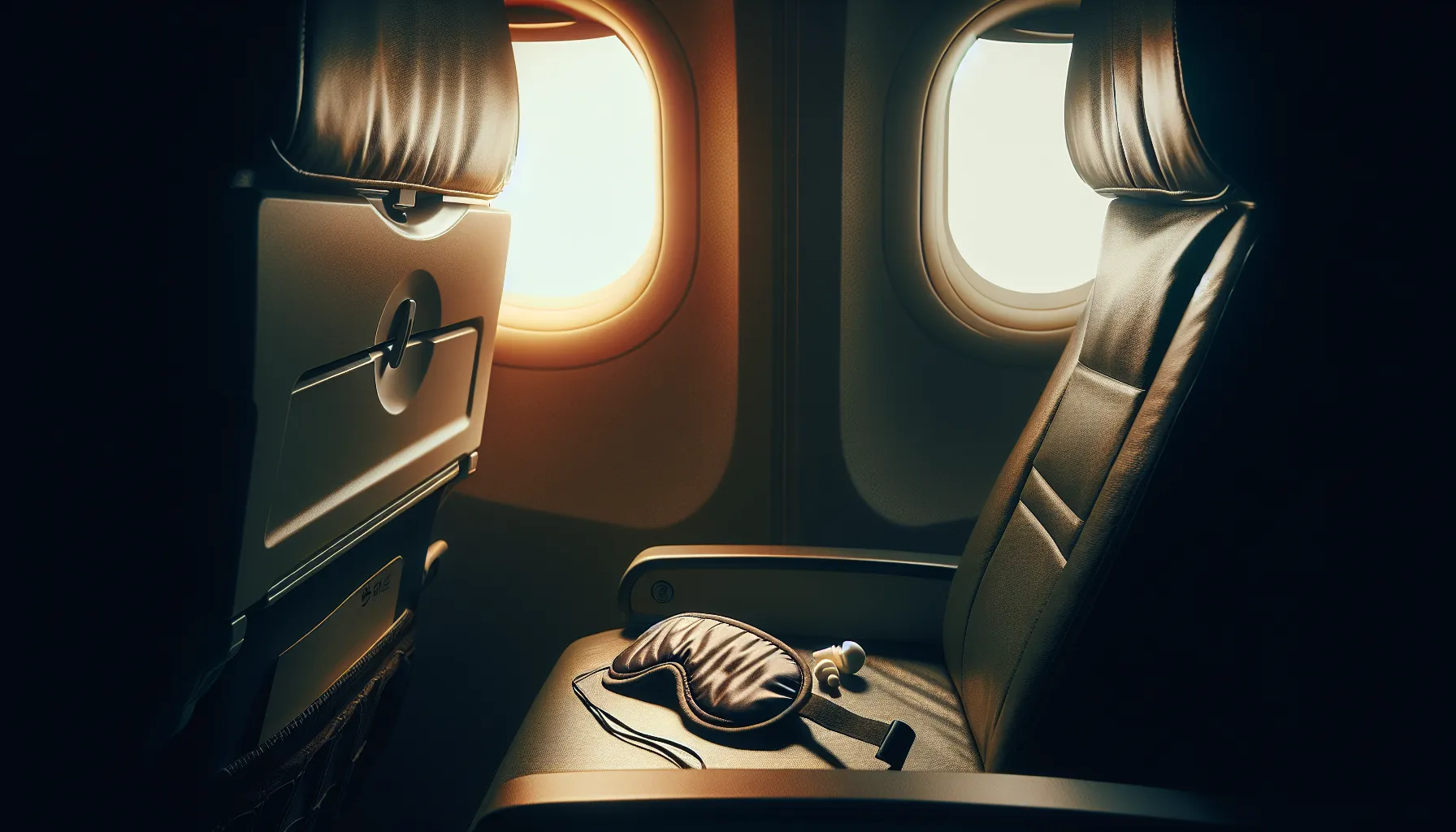How Do You Beat Jet Lag and Adjust to New Time Zones?
Travel experts and seasoned business leaders share their strategies for conquering jet lag as they frequently navigate time zones. From mimicking your routine to skipping coffee for better sleep flexibility, discover the top six methods these professionals recommend for adjusting to new time zones with ease.
- Mimic Your Routine to Reduce Jet Lag
- Adjust Sleep Schedule Before Departure
- Exercise to Improve Sleep Quality
- Get Sunlight to Reset Circadian Rhythm
- Take Melatonin to Ease Time Zone Transition
- Skip Coffee to Enhance Sleep Flexibility
Mimic Your Routine to Reduce Jet Lag
There are plenty of ways to fight off jet lag and its nasty effects on your well-being, but one of them has been proven to be effective for many people, which is to mimic your usual routine back home as much as you can so that your body doesn’t suffer from the time change as much as possible.
For example, one thing that can help you with the effects of jet lag is to schedule your naps and sleeping times in order to mimic your usual sleeping schedule back home and avoid any kind of consequences on your sleep once you arrive at your destination.
Another tip I recommend for those worried about jet lag is to recreate your nighttime routine even on the plane so that your body can recognize the signs of sleeping time approaching: eat at a certain time before your sleeping time and engage in activities that you usually do at night, such as skincare or some activity, like walking around or reading a book you’ve been reading that week.
 Giacomo Piva
Giacomo Piva
Travel Industry Analyst & Cofounder, Radical Storage
Adjust Sleep Schedule Before Departure
My go-to strategy is adjusting my sleep schedule before I even board the plane. A week before my trip, I gradually shift my bedtime and wake-up time closer to the schedule of my destination. This preemptive adjustment eases the transition, making the time zone change less jarring upon arrival.
This idea came from a personal experience of struggling with jet lag during a trip that had me hopping across multiple time zones. After enduring days of disorientation and exhaustion, I knew there had to be a better way. Research and experimentation led me to this proactive approach.
I tweak my routine in advance, and I’ve been able to significantly reduce the effects of jet lag, making my travels more enjoyable from day one. It’s an effective way to sync with new time zones, ensuring that I’m ready to dive into my adventures without skipping a beat.
 Swena Kalra
Swena Kalra
Chief Marketing Officer, Scott & Yanling Media Inc.
Exercise to Improve Sleep Quality
Light physical activity or exercise (even a simple walk outside) after a flight always helps us to reduce fatigue and improve the quality of sleep at the final destination.
 Jana Trtíková
Jana Trtíková
Travel Blogger, DreamyAdventurers
Get Sunlight to Reset Circadian Rhythm
Spending time outside as much as you can really helps to reset your circadian rhythm and makes it easier to adjust to multiple time zones in a short period of time. When I land at my destination and it’s still daytime there, I drop my luggage off at my accommodations and then immediately go for a walk. Natural sunlight helps to regulate your body’s internal clock, so spending time outdoors during daylight hours upon arrival at your destination alleviates a lot of the jet lag symptoms.
I also don’t recommend having coffee before bed, as this can mess with your routine and make it much tougher to adjust to the new time zone. Do your best to be outside as much as possible for the first couple of days and stick to a sleep schedule that is conducive to the current time zone you are in.
 Ha Malloy
Ha Malloy
Founder, Heat and Heartbeat
Take Melatonin to Ease Time Zone Transition
One way I found that works well to help me feel better after a long flight is by taking melatonin. This is especially helpful when I travel from the East Coast of the United States to Europe, like when I fly from Seattle to London.
On these journeys, I pop a melatonin pill shortly after boarding, which helps reset my internal clock to the new time zone. Melatonin is a hormone that regulates your sleep-wake cycles. It can make a big difference in minimizing jet lag’s effects on your body.
It essentially tricks your body into adjusting more quickly to the new schedule. This strategy allowed me to sleep for most of the 10-hour flight, aligning my rest pattern with the destination’s nighttime.
The result? I hit the ground running upon arrival, largely bypassing the dreaded jet lag that used to hamper my first few days.
It’s a simple, accessible solution—you can find melatonin at any pharmacy in the USA. Just this small step can significantly ease the transition across time zones, making international travel less taxing on your body and mind.
On my return trip from South Korea to the UK, I implemented a different tactic based on my previous experience.
From a prior journey, I learned that succumbing to sleep too early worsened my jet lag. So, during this 10-hour flight back, I committed to staying awake as long as possible. I focused on hydration, drinking plenty of water and avoiding alcohol, to keep my body in its best form.
This approach aimed to keep my circadian rhythm in line with my destination’s time zone, resisting sleep until a more appropriate hour upon arrival. The difference was palpable. I tried to sleep at the same time as people in the UK, even when I was on the plane. This helped me feel less tired and more ready to do things when I arrived.
These experiences taught me that whether using melatonin to encourage sleep or strategically staying awake to match my destination’s time zone, the key to beating jet lag lies in preemptively managing your body’s clock.
 Will Hawkins
Will Hawkins
Owner, Digital Business
Skip Coffee to Enhance Sleep Flexibility
As a recruiter specializing in executive placements, I’m often on the move. I have to adjust quickly once I land, and that means I can’t be suffering from jet lag.
It’s a sacrifice, but something that really helps me stay fresh is giving up coffee when I’m flying. Normally, I love a cup in the morning, but when I’m traveling, the last thing I need is caffeine. It’s never the right time; in fact, I know that as soon as I finish a cup, my meeting will be delayed or my flight pushed back. To stay rested, I need to be able to grab sleep whenever I can, and that means catching shut-eye at surprising hours and skipping the buzz until I get back.
 Travis Hann
Travis Hann
Partner, Pender & Howe
Submit Your Answer
Would you like to submit an alternate answer to the question, “How do you beat jet lag and quickly adjust to new time zones when traveling across multiple time zones? Share one method for reducing jet lag’s effects.”




